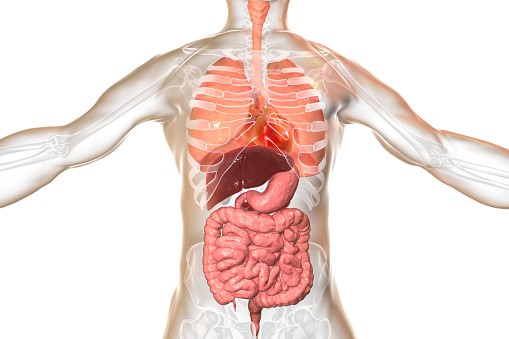Stroke is a usual cause of mortality and a major cause of substantial disability in people in the United States. It can be treated and prevented. However, certain factors might raise the overall chances of experiencing a stroke. As described by the Centers for Disease Prevention Control and Prevention (CDC), understanding the risk and learning how to reduce it is the greatest method to protect oneself and other loved ones from a stroke
Stroke is one of the main causes of mortality, dementia, and severe long-term impairment. There are researchers who studied the relationship between stroke-induced intestinal permeability, or leakiness, as well as cognitive impairment to improve stroke outcomes.
New Study's Analysis on Stroke
The Texas A&M researchers investigated whether transplanting intestinal epithelial stem cells (IESCs) given to healthy donors might restore the intestinal wall after stroke and improve stroke outcomes in their study, which was published on November 16 well into the journal Brain, Behavior, and Immunity. These findings showed that IESC implantation reduced stroke-induced mortality, reduced dead tissue volume and gut leakiness, and avoided stroke-induced cognitive impairment.
As described by the study's abstract, stroke, in addition to causing brain damage, immediately dysregulates the intestinal epithelium, leading to increased blood levels of inflammatory cytokines plus toxic gut metabolites as a result of a 'leaky' gut. Researchers wanted to see if rebuilding the gut using intestinal epithelial stem cell (IESC) transplantation might improve stroke recovery as well.
Organoids containing IESCs from rats treated and transplanted into older rats after stroke reversed stroke-induced gut dysmorphology, lowered gut porosity, and reduced circulating levels of the endotoxin LPS and the inflammatory cytokine IL-17A. Surprisingly, IESC transplantation enhanced both immediate sensory-motor impairment and chronic cognitive-affective performance after a stroke. Furthermore, IESCs from older mice exhibited senescent characteristics and weren't therapeutic for stroke.

A new study suggests that Intestinal Stem Cell Restoration Can Support as Novel Therapy For Cerebrovascular Stroke Patients.
ALSO READ: Risk of Stroke Can Be Reduced by 16 Percent If You Live Near Green Spaces, Study Reveals
Stomach Might Improve Stroke Outcomes
These findings provide credence to the concept that healing the stomach might improve stroke outcomes. Almost two-thirds of stroke survivors have a vascular cognitive impairment, and one-third will acquire dementia 1-3 years after the stroke. These catastrophic outcomes highlight the critical need for better stroke therapy.
Several earlier studies have found that IESCs heal the gut but also reduce gut permeability. Based on the latest scientists' analysis, after such a stroke, these repair mechanisms may be important to retain cognitive function. In a preclinical model, the researchers implanted original IESCs from healthy persons following stroke. IESCs derived from young donors restored gut architecture and decreased gut permeability, and lowered blood pressure levels of proteins as well as other chemicals harmful to brain cells.
Throughout the stroke, IESC transplantation also reduced depressive-like behaviors, such as cognitive impairment. IESC transplantation with older contributors did not increase stroke outcomes, demonstrating that donor's age influences transplant success.
Kathiresh Kumar Mani, Ph.D., an assistant research associate in the lab of Farida Sohrabji, Ph.D., head of the department for Neuroscience and Experimental Therapeutics at Texas A&M as well as senior author of the article initiated the research.
Sohrabji expects this study will accelerate the development of innovative medicines that target but also repair the intestinal epithelium to help ease stroke impairment. However, the principle that gut stem cells may be therapeutically helpful outside of the gut might be investigated for a far broader range of neurological illnesses.
RELATED ARTICLE: Sedentary Lifestyle Can Increase One's Risk of Stroke; Higher Than Those Spending More Time for Physical Activity
Check out more news and information on Stroke in Science Times.














